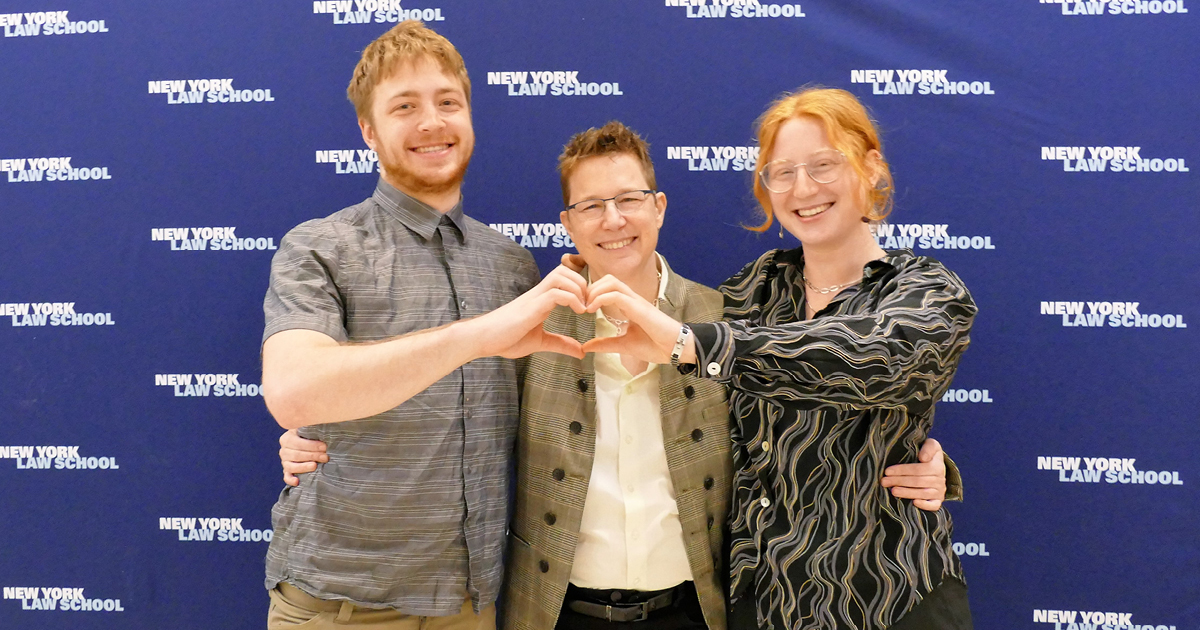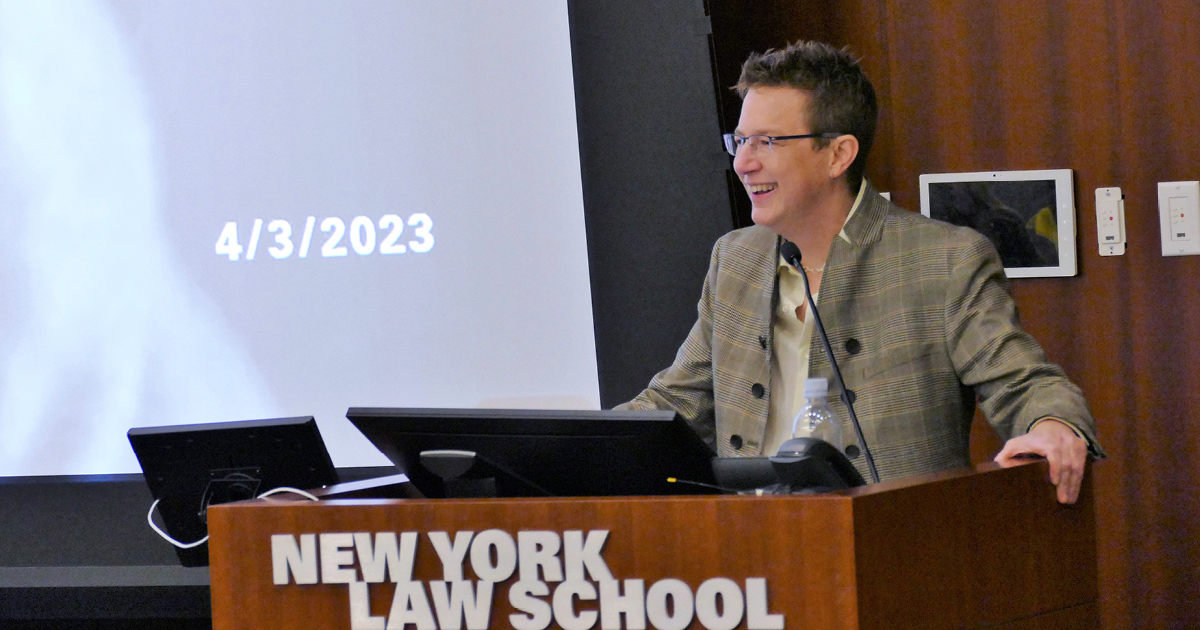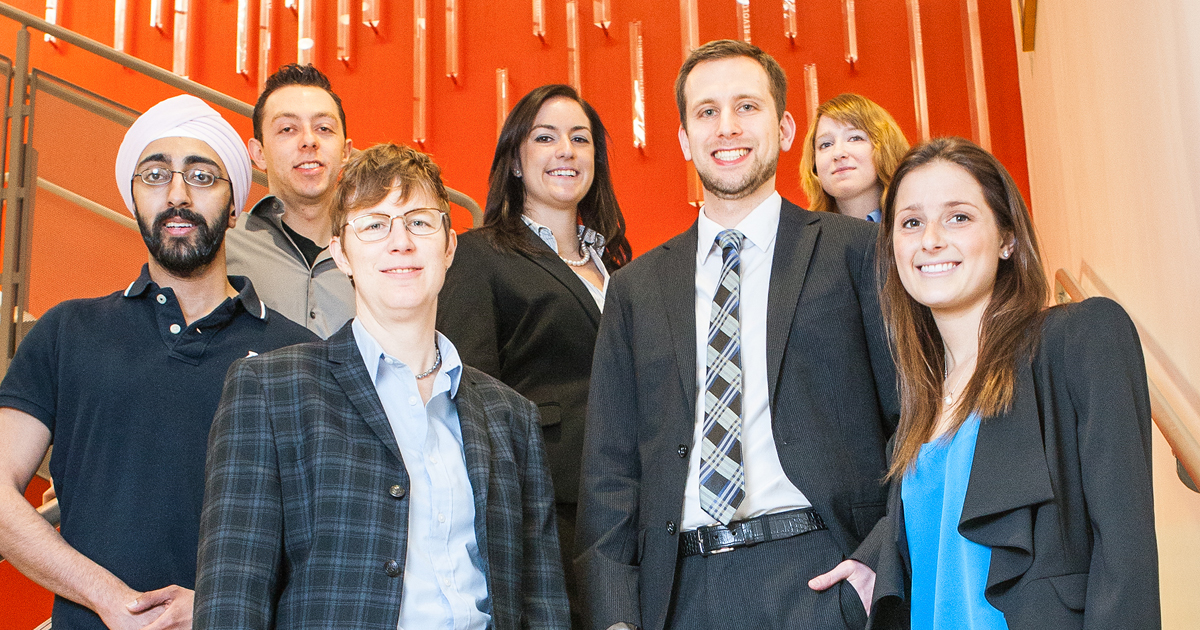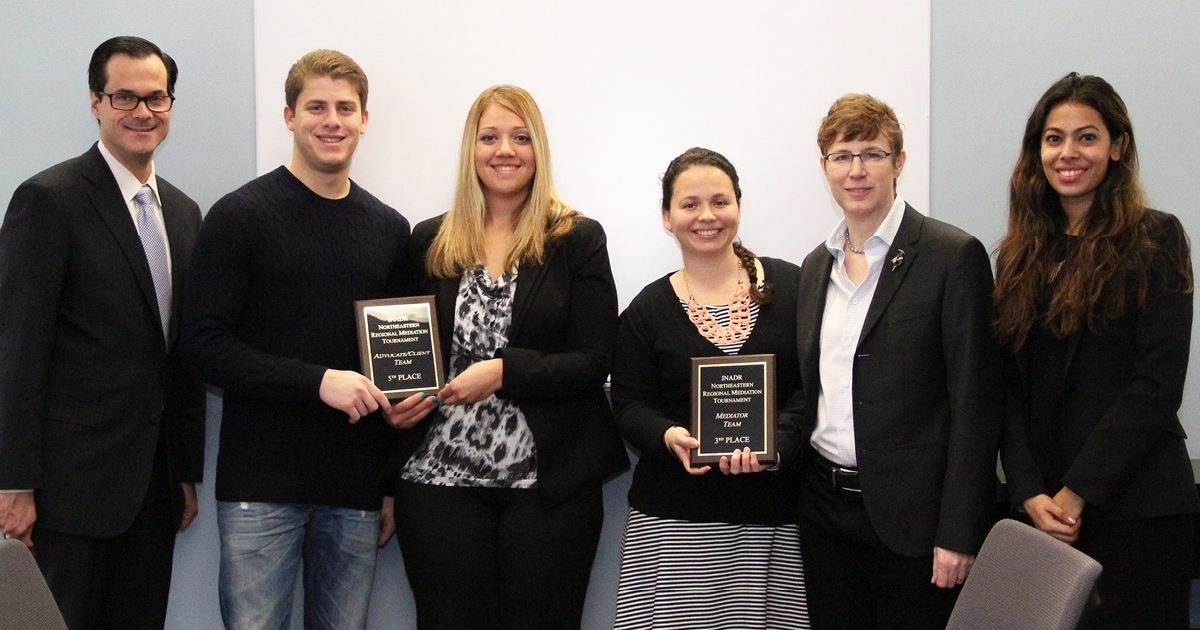Wallace Stevens Professor of Law Kris Franklin is an expert in legal pedagogy and experiential learning and a national leader in the field of academic preparedness. She is the founder of the New York Academic Support Workshop series and the Association of Academic Support Educators (AASE), she co-directs NYLS’s Initiative for Excellence in Law Teaching (IELT), and she is the new New York Law School Co-Editor for the Journal of Legal Education published by the Association of American Law Schools (AALS). An academic innovator, Professor Franklin brings a talent for creative and unconventional thinking to her teaching and her leadership at NYLS.
Here, Professor Franklin answers the NYLS 10—10 questions about her work, her interests, and the things she looks forward to.
1. What is the focus of your work?
That’s a harder question for me to answer than it probably should be because my interests range over many subjects and are hard to categorize. The easiest and most accurate answer is probably that the focus of my work is preparing law students to become enthusiastic and excellent lawyers.
2. How has your scholarship and interests changed over your career?
Much of my earlier scholarship offered critical examination of interpretive strategies used by judges, particularly in cases involving LGBTQ+ rights. But there was also a strong thread of focus on legal pedagogy and learning in law school even in that earlier work. Over time, I think my emphasis has shifted and the pedagogical inquiry is now more prominent in my writing.

Professor Kris Franklin poses with her children after her investiture as the Wallace Stevens Professor of Law.

Professor Kris Franklin presents her lecture at her investiture as the Wallace Stevens Professor of Law.
3. How do people respond to your work?
I am always moved by the fact that they seem to read it! My articles get read and cited fairly frequently, and my books have been adopted nationally; some more than others. Engagement is all we can ask for in scholarship, so I could not be more pleased.
4. What’s a problem you wish you could solve with a snap of your fingers?
Helping students, lawyers—and frankly, people in general—become more comfortable navigating complexity. The world is a complicated place! We need nuance and the ability to hold on to many potentially competing ideas at the same time, and to do it from a place of empathy and compassion.
5. What questions do you have that you want to be able to answer with your work?
What contributes to legal reasoning with fidelity, integrity, and depth? How do we help advocates, judges, and aspiring lawyers become better at that while holding firm to their values?
6. How do you approach teaching law?
I hope with enthusiasm and joy. I think I am known for innovative pedagogy. But being experimental always means some things will work better for some students than others. To me, though, the most important constant is that my students can see the excitement I have about their learning and that it motivates them in good ways.

Professor Kris Franklin, who established NYLS’s award-winning Dispute Resolution Team, poses with members of the 2012 team.

Professor Kris Franklin poses with the 2014 Dispute Resolution Team and Dean Anthony Crowell.
7. What are you excited about these days?
Well, curling season has begun! I’ve been playing in Brooklyn’s Prospect Park for a number of years. The ice conditions on an outdoor rink are notoriously bad and I lack any real athletic talent, but it is always fun to play.
8. What’s the next year like for you?
New York Law School just took on responsibility for co-editing the Journal of Legal Education, the publication of record for the Association of American Law Schools, and Dean William LaPiana and I are NYLS’s co-editors. I am still getting my feet wet in this exciting new venture. Meanwhile, I am a new co-author of the next edition of the Contracts textbook I have long used, and am greatly looking forward to its publication.
9. Whose work excites you these days?
Sociologist and law professor Dorothy Roberts writes about race, class, family integrity, motherhood, and reproduction, and I always eagerly read whatever she writes. I was so thrilled to see that this year she received a MacArthur “genius” grant, which her work richly deserves.
10. What are you reading, watching, or listening to?
Great British Bake Off! I’m not caught up yet, so please don’t tell me who won.
